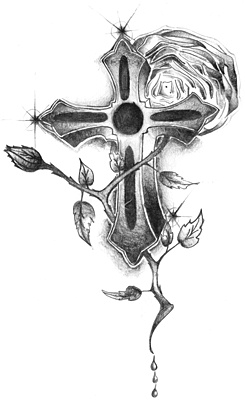All Nonfiction
- Bullying
- Books
- Academic
- Author Interviews
- Celebrity interviews
- College Articles
- College Essays
- Educator of the Year
- Heroes
- Interviews
- Memoir
- Personal Experience
- Sports
- Travel & Culture
All Opinions
- Bullying
- Current Events / Politics
- Discrimination
- Drugs / Alcohol / Smoking
- Entertainment / Celebrities
- Environment
- Love / Relationships
- Movies / Music / TV
- Pop Culture / Trends
- School / College
- Social Issues / Civics
- Spirituality / Religion
- Sports / Hobbies
All Hot Topics
- Bullying
- Community Service
- Environment
- Health
- Letters to the Editor
- Pride & Prejudice
- What Matters
- Back
Summer Guide
- Program Links
- Program Reviews
- Back
College Guide
- College Links
- College Reviews
- College Essays
- College Articles
- Back
Drummond: Friend or Foe
In books on debatable questions such as this one, characters often come off as dry or boring, and are made solely for the purpose of regurgitating information. Inherit the Wind, a play written by Jerome Lawrence and Robert E. Lee, did not however follow this pattern of dry-cut characters. The play is set in the small time of Hillsboro, Tennessee, where a controversial debate on freedom to think is brewing. Bertrum Cates, a local middle school schoolteacher, is being prosecuted for the right to teach evolution. A strong dispute between an agnostic defense attorney, Henry Drummond, and the devout Christian prosecuting attorney, Matthew Harrison Brady is the premise of this book. Drummond, one of the protagonists, also seen throughout the book as the antagonist, is one of the characters with the most personal growth throughout the book.
Drummond at the beginning of Inherit the Wind is depicted as an evil tyrannous man that is a living delineation of god. The reverend of the town, a leadership figure that has much influence on the opinion of the people is the first to promote this idealization. “I can still see him. A slouching hulk of a man, whose head juts out like an animal. You look into his face and wonder why god made such a man. And then you know that god didn’t make him, that he is a creature of the devil, perhaps even the devil himself. ” (Act I Scene I p.28) This comment can be seen as a bit cacophonous. Since the reverend has such a strong influence on the mindset of the towns people it made the jury bias going into the trial. Drummond sees this bias from the beginning of the trial and the impact the religious views of the people. Drummond is all about a fair fight, he is righteous and fair though he may come off as indifferent to people who oppose his beliefs. “The use of this title prejudices the case of my client, it calls up a picture of the prosecution, astride a white horse, ablaze in uniform of a militia colonel, with all the forces of the right and righteousness marshaled behind him.” (Act I Scene I p. 42) Drummond proves his need for fair ground though he knows no matter what his efforts are the playing ground will never be fair. At the beginning of the book Drummond can be seen as very persistent and even obnoxious.
Towards the end of the book Drummond shows the audience and kinder and more relatable side of him. “Drummond is left alone on stage. Suddenly he notices Rachel’s copy of Darwin on the table…He weighs the volume in his hand; this one book has made the center of the whirlwind. Then Drummond notices the Bible on the Judge’s bench, He picks up the Bible in his other hand; he looks from one volume to the other, balancing them thoughtfully as if his hands were scales.” (Act III Scene I p. 129) This contemplation between Bible and Darwin shows his willingness and open mindedness. This open mindedness is obscured at the beginning of the play by of the contradicting opinions of the character. Drummond reveals how this fight for Bert’s freedom is not for the right to teach evolution rather than the right to think. “And while they are trying to make you swear, remember---you’ve helped the next fella... You don’t suppose this kind of thing is ever finished, do you? Tomorrow it will be something else---and another fella will have to stand up. And you’ve helped give him the guts to do it!” He is often believed to be a character that is fighting for the selfish rights of his own personal beliefs, when in fact it is revealed he is fighting for the rights of all to have their own personal beliefs and share them.
Towards the end of the play Drummond can be seen as a more understanding character rather than the devil he is depicted as at the beginning. He fought for the right to have your own beliefs and even if he didn’t win the matter got attention with in itself was a partial victory.

Similar Articles
JOIN THE DISCUSSION
This article has 0 comments.
